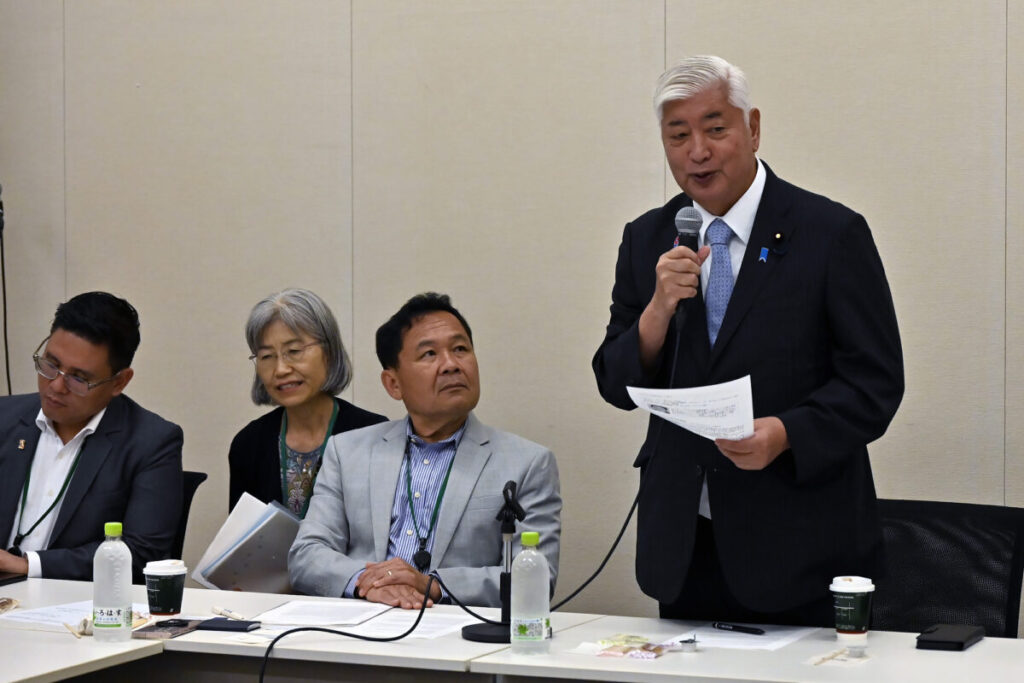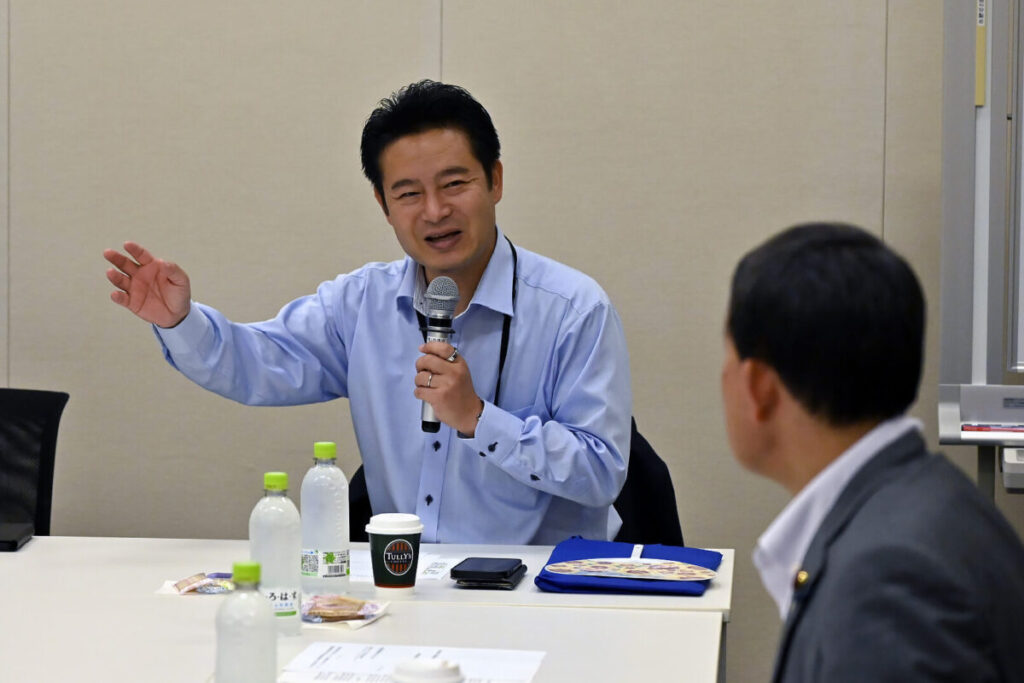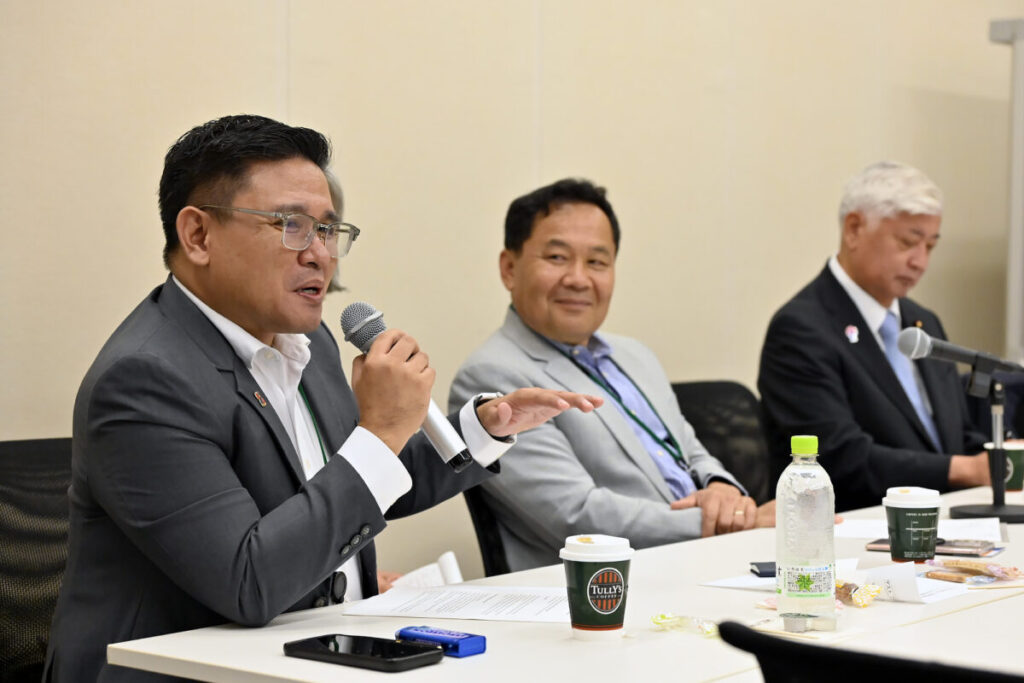In May 2025, the Caucus for Universal Values in the Indo-Pacific (hereinafter, the Caucus) was established in the Japanese Diet with the aim of promoting shared universal values such as freedom, human rights, the rule of law, and democracy in the Indo-Pacific region. The Caucus is expected to serve as a platform for fostering dialogue and cooperation to strengthen democratic ties within the region in response to the global expansion of authoritarianism.
On July 23, a dialogue was held between a delegation from CALD, led by Mardi Seng (CALD chairperson and a senator from Cambodia), and 11 members of the Caucus (including proxy attendees), including the chair, Hon. Gen Nakatani (Liberal Democratic Party), and executive secretary, Hon. Shu Sakurai (Constitutional Democratic Party of Japan). Members of the JCIE Democracy for the Future Project also attended as a collaborating organization.
During the dialogue, it was pointed out that restrictions on civil liberties are spreading throughout the Indo-Pacific region. Given that the situation in Ukraine and other factors have accelerated the decline in support from EU countries, and that US support has been rapidly frozen or reduced since the beginning of this year, participants noted that the region is at a critical juncture, and their discussions touched on the following key points:
Values such as freedom, human rights, the rule of law, and democracy are often perceived as Western concepts, but they are regarded as important values in Asia as well, and it is therefore important to redefine these values in accordance with the regional context.
It was recognized that these values should not be taken for granted but rather should be continuously reviewed and refined to align with reality. This requires ongoing dialogue to ensure that those ideals take root in society.
Forums like the multipartisan Caucus in Japan can create opportunities for dialogue, and it was thus viewed as a meaningful step that could serve as a catalyst for broader regional dialogue and cooperation.



